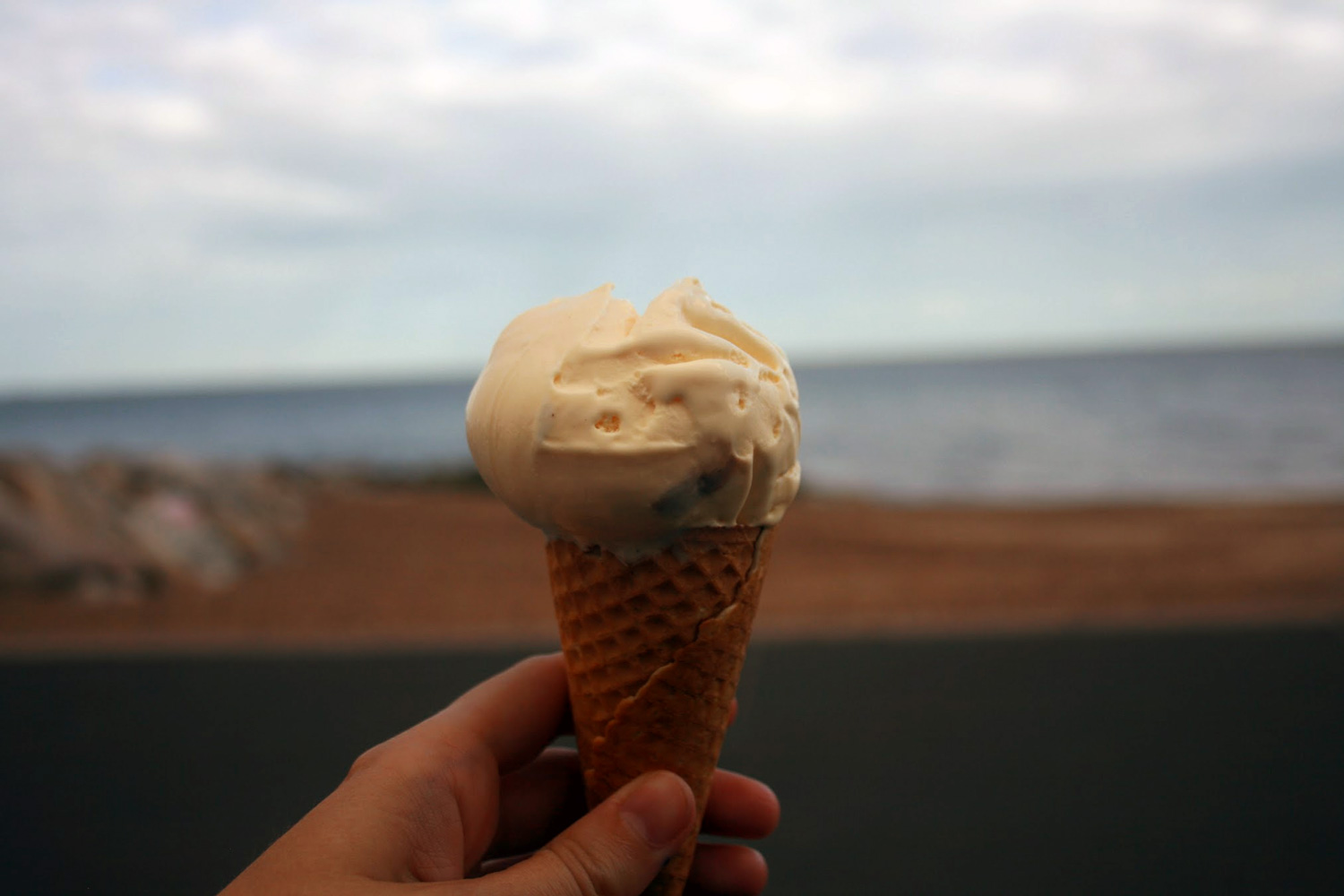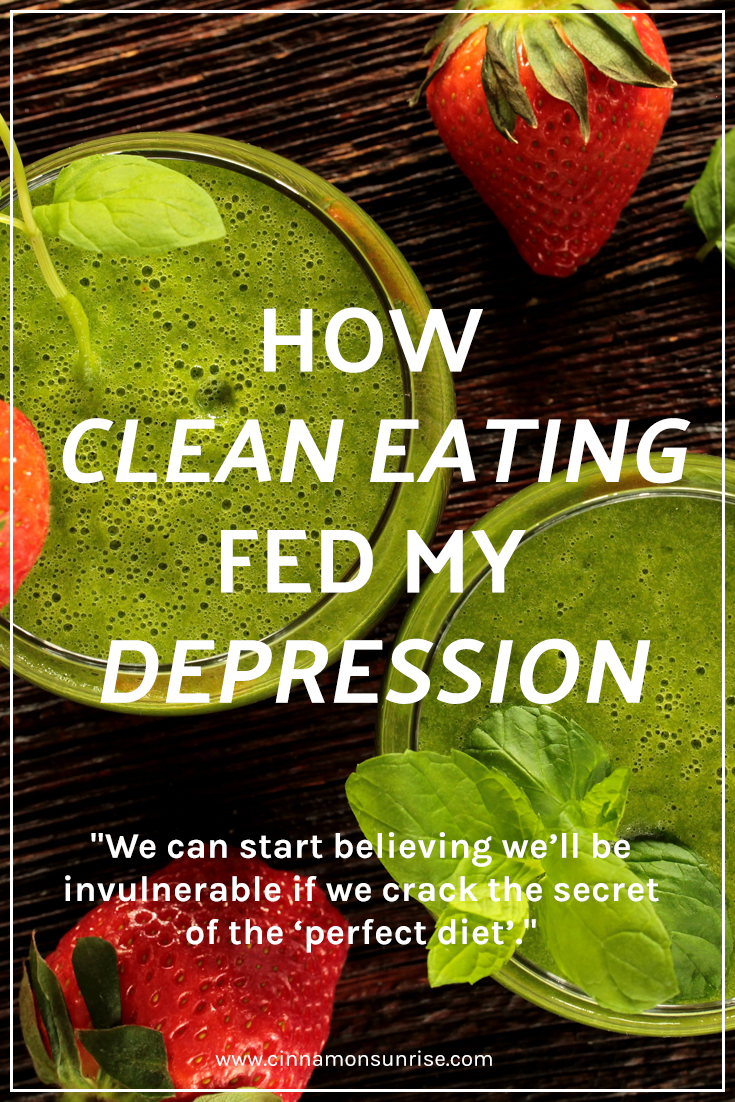This post may contain affiliate links. If you click on an affiliate link and buy something, I get a percentage of the sale. Find out more by reading my affiliate policy and disclosure.
There’s an image that turns up in ‘health and wellness’ spaces. It’s white. Glowing. Minimalist. There’s usually a pop of colour – a green smoothie, or a plate of colourful fruit. Sometimes there will be earthy, natural things around – apples, or wheat, or coffee beans. It is the ‘instagram’ shot. It is #cleaneating.
The goal of that picture is to communicate a type of lifestyle. It is a life I am envious of. It’s a life where your house is always clean and ‘guest-ready’. A life where you are always beautifully put together. A life where you rock off to your glamorous job after eating a few goji berries and drinking a cup of artisan coffee.
The myth of the perfect life
There is an insidious desire wrapped into the idea of this life. The sun is always shining. When bad things happen it is only so you can ‘grow as a person’. Jobs are about passion and calling, not about paying for car repairs.
It is a life that attempts to capture that moment when you cleaned your house from top-to-bottom and make it last forever. That moment when all your laundry and dishes are put away. That brief, magical, wonderful moment when you’re serene, healthy, glowing. That magical moment when you are in control.
In real life, that moment doesn’t last. You will have unwashed dishes in your sink at some point during the day. Carpets get crumbs. Wine gets spilt. Clothes get dirty. We go for long walks and track mud into the house. Our jobs feature paperwork, irritating co-workers, and some amount of drudgery. People we love get sick. Sometimes we get sick. Most of this is out of our control.
The quest for the ultimate ‘life-hack’
I’m one of those people on a quest for the ‘ultimate life-hack’. This blog is an attempt for me to share some of the things that have made my life easier and made me feel more in control. We can and should be taking responsibility for our health, our finances, our homes, our jobs.
But there’s an inherent danger here too. The flip side of realising that we’ll be healthier if we stop eating cheesy-crust pizza every day? We can start believing we’ll be invulnerable if we crack the secret of the ‘perfect diet’.
What does any of this have to do with clean eating?
I recently read The Angry Chef*. He speaks about orthorexia, eating disorders and the rise of ‘clean eating’. He suggests the obsession with food purity is a reaction to fear, the fear that there are bad things out there we can’t control.
Food is the one thing we can control. We can control what we eat. And we can use what we eat as a talisman against the spectre of the things we can’t control. Cancer. Diabetes. Alzheimers. Eat enough kale, the thinking goes, and we will be invulnerable.
The counterpoint to #cleaneating is dirty. Carbs are dirty. Dairy is sometimes dirty, unless it’s natural and unprocessed. Processed ham is dirty. Sugar is definitely dirty. Eat greasy, sugary, dirty carbs and you will summon ill-health to your door.
The complexity of good health
Health is more complicated than this. Lifestyle factors do affect your health, but they are only one piece of a puzzle. Genetics, culture, income, education, family and friends, not to mention a big helping of luck all have an impact. Ultimately, ill-health and death come for us all.
This is not an excuse to not eat kale (or a variety of other fruits and vegetables). Kale is a powerhouse of nutrients and is definitely good for you. I talk about healthy eating as one of the three fundamental life skills.
But it is a reminder to take pleasure in your food. A reminder that a serving of chips, or a Sunday morning breakfast of pancakes, bacon and syrup will not strike you dead on the spot. ‘We are what we consistently do’ works both ways. The odd indulgence is not something to be terrified of, or something to use to hurt ourselves.

This is a lesson that has been difficult for me to learn. It’s hard to resist the siren call of the perfect life. The one that could be mine if I crack the code. The ultimate life-hack. The perfect cleaning routine. The ‘cleanest’ diet.
It’s hard to not feel guilty for not living the perfect #nofilter life. We are surrounded by images that capture a single perfect moment and freeze it.
But in reality, ‘perfect’ can only last a moment. Then the rain starts. The laundry basket fills up. Your flowers wilt. And, if we’re not careful, we start to feel guilty.
How clean eating fed my depression
Anxiety and depression lurk in the gap between who we are and who we think we should be. I had an idealised image in my head based on those perfect instagram moments. An image encapsulated by #cleaneating.
But, in real life, everything moved in cycles. I cleaned. And then I made things dirty. I ate kale and paleo pancakes. And then I ate cheap ham sandwiches and brownies.
I could have enjoyed the joy that was there to be had. But I was too busy feeling guilty about never doing quite enough.
I had guilt that my house wasn’t cleaner. Guilt that I couldn’t work full time and cook every meal from scratch. Guilt that for every one thing I crossed off my list, there were two that didn’t get done.
People get sick. Even if they eat kale.
Depression got me in a downward spiral, and clean eating fed my depression. Every ‘bad’ meal was a stick to beat myself with, and food became a thing I could worry about, think about, obsesses about — and distract myself with.
I used food as a way to avoid facing up to the real problems in my life. Attempting to perfect my diet meant I could safely ignore the state of my relationship, my social life and my career.
Embracing imperfection
Light and dark cannot exist without each other. Perhaps this is too philosophical for a blog about ‘how to be a grown-up’. And yet I feel like it is the most important and difficult adulthood lesson we have to learn.
Perfect moments should be enjoyed and celebrated. They should even be worked towards (do, absolutely, clean your house top-to-bottom just to feel how awesome it is!).
But we need to accept that those moments are fleeting. That constant happiness is neither attainable nor desirable. We celebrate happy moments precisely because they are rare.
An obsession with a perfect life of constant happiness ends up draining the joy from everything.
I don’t have all the answers. This is something I continue to work on. But I do know that I will no longer be tagging my instagram food shots with #cleaneating.
Instead, I’ll be using #joyfuleating.


I love it! #joyfuleating! I too get wrapped up in the things I am NOT accomplishing sometimes. Like losing that 5 lbs., getting rid of those wrinkles popping up, buying that house I really want, etc. I have to remind myself constantly to be happy with what I have and who I am.
It’s such a tricky but essential balance … aiming for the things you want, but also remembering to stop and appreciate what you have 🙂
Thanks for commenting!
Interesting way of looking at clean eating. I never thought that some people might use clean eating as something they can control. So, it can be an obsession. When most people think about an eating disorder, they tend to think about over eating or not eating at all. I have to ponder a bit about cleaning eating.
Thanks for the comment! And yes, when we think of eating disorders we tend to think of anorexia or bulima. But ‘orthorexia’ is a new kind of eating disorder, and is reflected by an obsession with needing to eat ‘clean’ or ‘pure’ foods. In truth, there are no ‘clean’ foods, there are just different amounts of macro and micro nutrients that we need. You can’t survive by eating nothing but green smoothies (though some people seem to think you can).
Wow!! great Post. Thanks for sharing it.